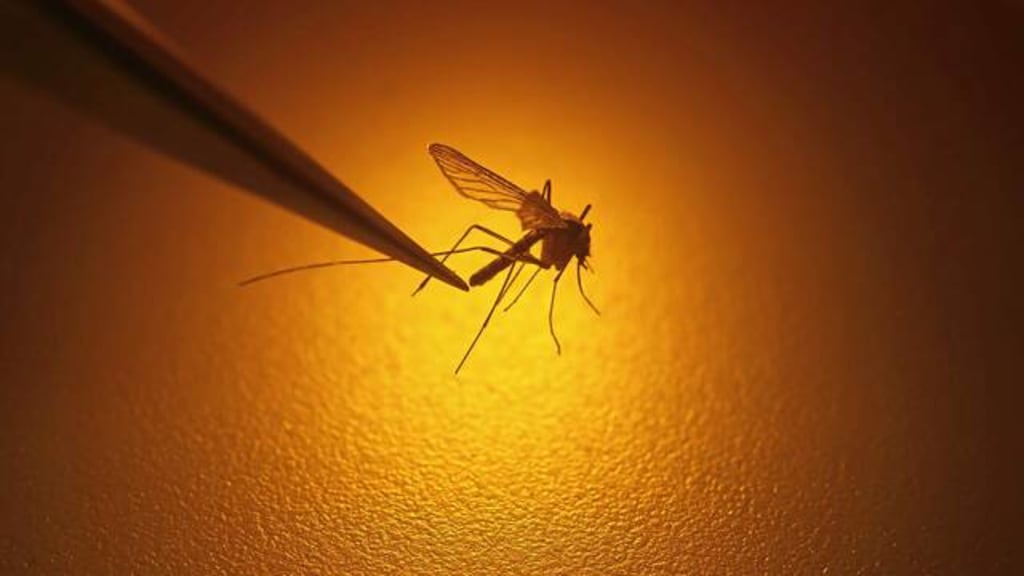Bangladesh’s worst ever dengue outbreak has now killed more than 1,000 people
Health

Bangladesh’s worst ever dengue outbreak has now killed more than 1,000 people
More than 1,000 individuals have lost their lives to dengue in Bangladesh's most severe outbreak on record, as per official data. The ongoing spread of the disease is driven by rising temperatures resulting from the climate crisis, causing more cases to be reported outside densely populated urban centers for the first time.
Since January, the mosquito-borne illness has claimed the lives of 1,017 people, including over 100 children. Infections have surged to over 208,000, according to figures released by the Bangladesh Directorate General of Health Services on Monday.
Although dengue fever is endemic in this South Asian nation, with infections usually peaking during the monsoon season between July and September, this year witnessed a much earlier increase in cases, toward the end of April.
Scientists attribute this rise to an extended monsoon season characterized by higher temperatures and irregular, heavy rainfall, which created ideal breeding conditions for the Aedes mosquito, responsible for carrying the dengue virus.
The influx of patients has strained the country's healthcare system, with reports of hospitals facing a shortage of beds and staff to provide adequate care.
The fatalities from this outbreak are nearly four times higher than those of the previous year, which recorded 281 deaths. In September alone, more than 79,600 cases and 396 deaths were reported, as indicated by the Bangladeshi health authorities.
Dengue is a viral infection that manifests flu-like symptoms such as severe headaches, muscle and joint pain, fever, and, in some cases, internal bleeding leading to death. Transmission occurs through the bite of an infected Aedes mosquito, and there is currently no specific treatment available for the disease.
Dengue, commonly known as breakbone fever, is endemic in over 100 countries, infecting an estimated 100 to 400 million individuals annually, according to the World Health Organization (WHO).
Previously, outbreaks were mainly confined to densely populated urban hubs like the capital city of Dhaka, home to over 20 million people. However, this year, the infection rapidly spread to every district of the country, including rural areas, as reported by the WHO.
During a recent news briefing, WHO Director-General Tedros Adhanom Ghebreyesus stated that the UN agency is assisting the Bangladeshi government and authorities in strengthening surveillance, laboratory capacity, clinical management, vector control, risk communication, and community engagement during this outbreak.
Public health experts in the country are urging for dengue to be prioritized, emphasizing the importance of prevention measures such as early detection and access to adequate healthcare services. Repeat infections of dengue can be more severe and even life-threatening.
These calls to action extend beyond Bangladesh. As the burning of fossil fuels rapidly heats up the planet, dengue outbreaks are expected to become more prevalent in new regions across the world.
According to the WHO, the global number of dengue cases has increased eight-fold over the past two decades.
As the climate crisis worsens, mosquito-borne diseases like dengue, Zika, chikungunya, and yellow fever are projected to spread further and pose an increasingly significant threat to human health.
This year, South America has been severely affected by dengue, with Peru struggling against its worst outbreak on record. Cases in Florida prompted authorities to issue alerts in several counties. Additionally, there has been a spike in cases in Sri Lanka, Thailand, Malaysia, and other Asian nations. Countries in sub-Saharan Africa, such as Chad, have also reported outbreaks.
WHO's Alert and Response Director, Abdi Mahamud, referred to these outbreaks as a "canary in the coalmine of the climate crisis" and emphasized that "more and more countries" are burdened by these diseases.
About the Creator
AMENA ISLAM
I derive great satisfaction from showcasing my artistic pursuits and written works,regardless of their emotional demeanor, whether they be whimsical or deeply meaningful. Additionally, I shall proudly present a comic strip currently. thanks
Enjoyed the story? Support the Creator.
Subscribe for free to receive all their stories in your feed. You could also pledge your support or give them a one-off tip, letting them know you appreciate their work.






Comments
There are no comments for this story
Be the first to respond and start the conversation.